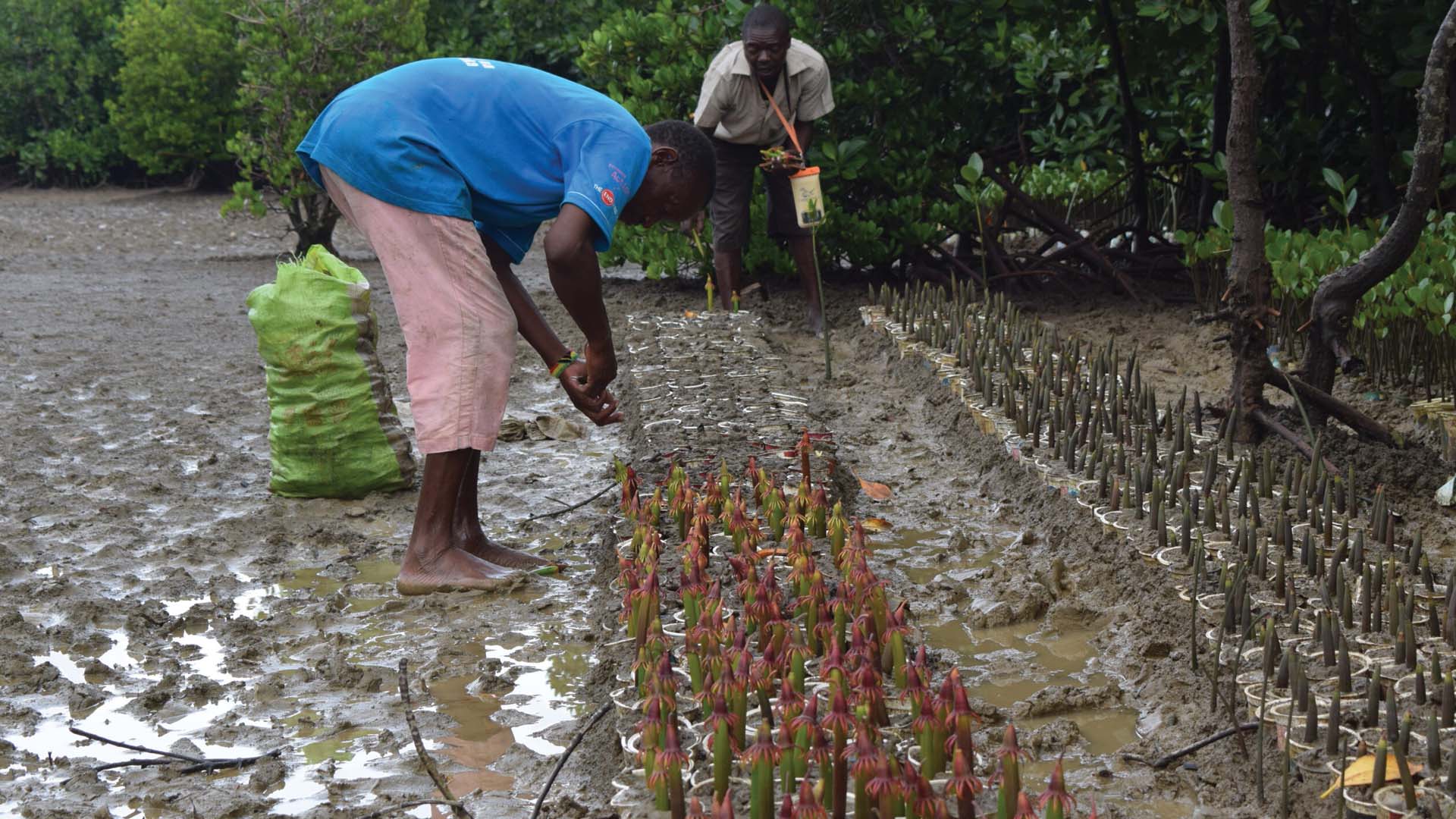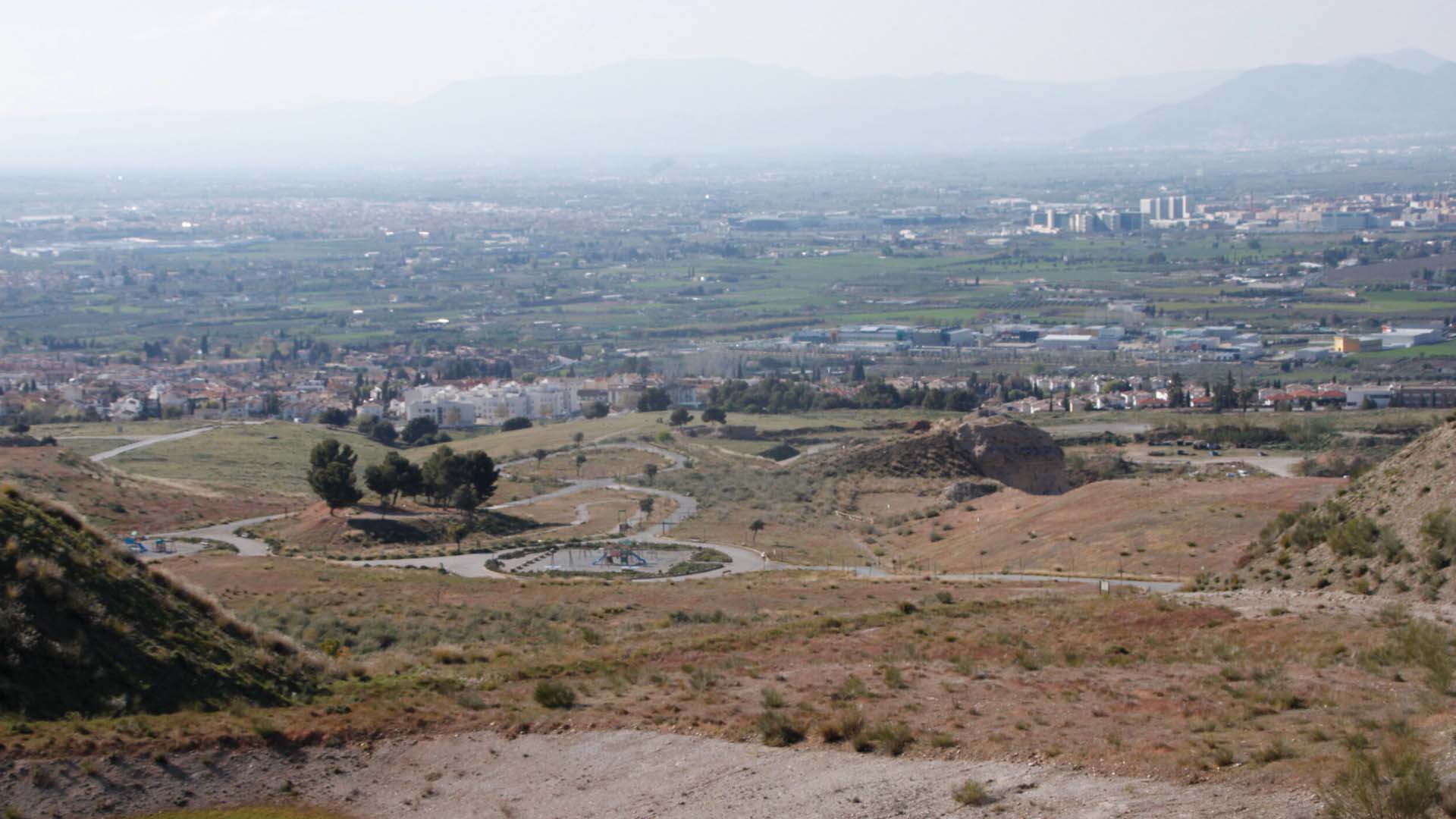Young people around the world are leading in innovations and actions to bring necessary changes to the world. In fact, some have already created organizations to make a difference. To recognize their efforts, 1t.org and UpLink launched the #GenerationRestoration Youth Challenge in collaboration with Salesforce and UN Decade on Ecosystem Restoration. The 14 winners were selected and will be given mentors, workshops, and connections to investments to further their organization. This year, six of the winners have direct connections with forests and are attempting to curb the many issues they are facing.
1. CERIOPS Research Organization – Mangrove Restoration

Photo Credit: CERIOPS
CERIOPS is an organization based on developing programs and research on the East African Coast. Their pilot project is training local communities affected by impacts of mangroves degradation on best practices for ecosystem restoration. In their four years of service, they have restored 131 hectares of mangroves.
Mangrove ecosystems are among the world’s highest biodiversity hotspots, naturally sequestering huge volumes of carbon from the atmosphere and helping their local communities. Unfortunately, mangrove ecosystems have undergone extreme degradation in the past decades. Without proper approaches or programs like this one, these vital ecosystems will not survive.
2. Ecological Food Caterpillars Company (EFCC) – Edible Caterpillars
The EFCC was created in Bukavu in the Democratic Republic of Congo to restore biodiversity by planting and managing indigenous forest trees. These trees are hosts for edible caterpillars. This helps the environment, alleviates food insecurity, and creates a source of income for youth and indigenous people.
In the territory of Mwenga, where most of EFCC’s work is done, 65% of the forests are overexploited and degraded. This accentuates the negative effects of climate change in the area, eliminates a source of income, and results in food insecurity. Edible caterpillars are a source of income and protein for the local people, and replanting and managing these trees will provide both food and an income that has been taken away.
3. Cábula Initiative – Desertified Land
The Cábula Initiative aims to recover desertified land in southern Spain into a thriving Mediterranean forest. This land has gone through many different uses in history from agriculture, military, mining, and garbage dumping. As a result, biodiversity has suffered, fertile soil has been lost, and the once Mediterranean ecosystem has turned into dry land. Consequently, the area suffers from water stress, droughts, food scarcity, and a loss of biodiversity.

To fix these problems, the initiative plans on planting trees and shrubs, involving local stakeholders to recover social capital, creating jobs, and producing food. In their three years in the field, the Cábula Initiative has helped plant 100,000 trees and shrubs, and 60 hectares of abandoned crops have been regenerated through agroforestry.
4. The Research Education for Sustainable Actions – Pollinator Gardens
The Research Education for Sustainable Actions is establishing pollinator gardens in rural communities in Zimbabwe with intensive farming. Farmers provide pieces of their land that they are not farming, and the organization provides the trees, shrubs, herbs, and training for a pollinator garden. In a pollinator garden, plants are grown for flowering for the benefit of pollinators in the area.
Because of land-use changes, pollinators are declining in the area. If nothing is done, these pollinator species are at risk. These gardens will save important organisms that cannot survive land-use changes. For example, farmers are trained in beekeeping and instructed on how to install beehives in their pollinator gardens. These natural solutions of planting indigenous plants benefit the ecosystem due to their compatibility with existing species. This is opposed to more unnatural solutions that have been used in the area unsuccessfully.
5. Treeconomy – Drone and Satellite Carbon Sensing
Founded by two students, Treeconomy’s mission is to combat climate change, restore biodiversity, and improve rural livelihoods by revolutionizing carbon offsetting. This is done through their drone- and satellite-based forest carbon assessment and monitoring technology. They aim to capture and store CO2, restore and reforest hectares of land, and increase the income of their landowner partners.
With their drone and remote sensing, they first measure and monitor forest carbon. They then complete a drone survey, collate data and imagery, and analyze the data to create a 3D assessment. Next, they calculate biomass and carbon stocks and use the results to train satellite monitoring algorithms. Treeconomy has already secured over $150,000 in funding.
6. Blockchain Innovation: Saving the Amazon
Saving the Amazon with Blockchain Innovation conserves the Amazon Rainforest by collaborating with the indigenous inhabitants. Through their technology, anyone in the world can adopt a tree or a forest in the Amazon. This tree is planted and managed by the local communities to help reverse climate change and generate economic opportunities for the local communities.
With Blockchain-based technology, the donations are done through digitally safe wallets, and the local people receive direct donations and payments. This not only generates wealth for the region and local people, but it also helps the rainforest itself with the new trees planted and managed.
To discover more about innovations in forestry, stream Tomorrow World Today’s “Pipe Dreams” on SCIGo and Discovery GO!







